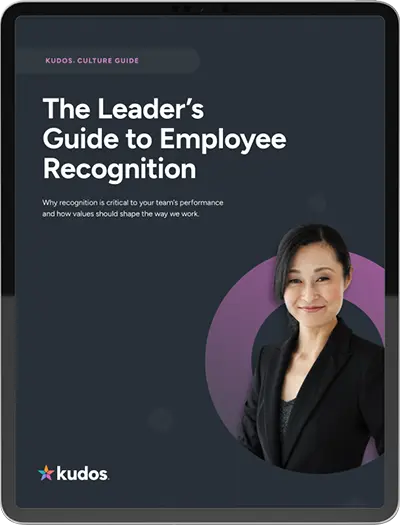Discover insights on employee recognition and engagement, workplace culture, performance management, people analytics, and more.


Learn why recognition is critical to your team’s performance and how values should shape the way you work.
Get Your Guide